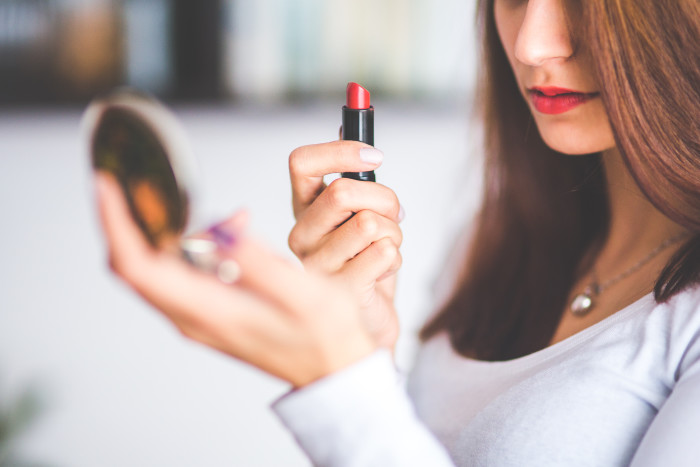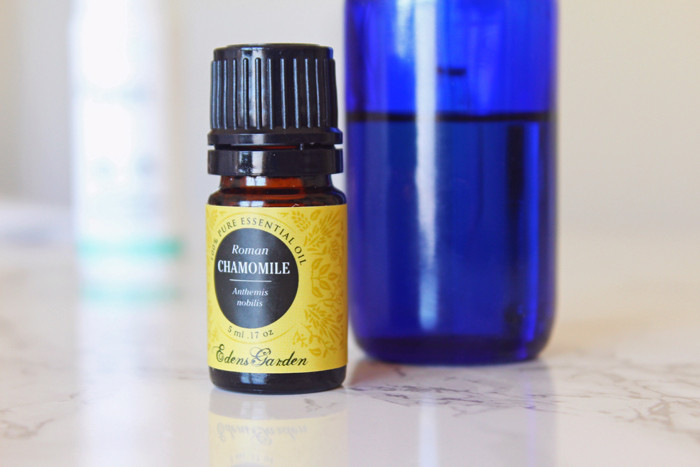Green beauty fans may be disheartened to learn that there can be harmful ingredients in natural skincare products.
Although I’ve spent a good deal time researching what synthetic ingredients we should avoid putting on our skin, I haven’t spent much time looking into the safety of the most common natural alternatives. Even though I know the naturalness of an ingredient doesn’t determine its safety or effectiveness, I am certainly more drawn to natural or minimally processed products. After all, the vast majority of natural cosmetic and skincare companies have made the choice to be natural because they have consumer safety in mind.
There are a few ingredients that, while natural and supported with buckets of anecdotal evidence, may not actually be as safe as we think. The words linalool, linalyl acetate, and limonene may not ring a bell, but there’s a good chance that these components are present in some (or many) of your skincare products, especially if you’re a natural beauty junkie like me. In layman’s terms, we’re talking lemon oil and lavender oil.
Yes, lavender. Before I jump into the details, let me say that I’ve used and recommended lavender oil for years—both in natural skincare products and DIY concoctions. There is some serious love for lavender oil both in and out of the natural beauty community. Its aromatherapy properties are well-documented, and many of us associate lavender with soothing our nerves as well as our skin.
Likewise, lemon oil is a beloved natural ingredient. A popular ingredient for brightening patches hyper-pigmentation and fighting acne, lemon pops up in everything from anti-aging to acne-fighting treatments. Not to mention a whiff of its crisp fragrance instantly lifts the mood.
The Deal with Lavender
Since I try to inform myself about the ingredients in my DIY projects, I’ve looked up lavender in several aromatherapy handbooks, and each concurs that lavender is “non-sensitizing” and “non-irritating.” Peer-reviewed studies have found otherwise, however. Well, sort of. Lavender won’t likely sensitize skin in a noticeable way–the way that a chemical peel might–but repeated use of lavender oil may damage skin over time.
In particular, linalool and linalyl acetate, the two main components of lavender oil, can be cytotoxic: in a concentration of .25%, these components cause cell death. (.25% is a fairly small concentration considering that the standard recommended concentration for essential oils is .5%-1%.) A 1991 study found that lavender damages fibroblasts, the cells responsible for producing collagen. Just as alarming, linalool and linalyl acetate oxidize when exposed to air, a process that makes the components potentially more irritating to skin (even if that irritation is invisible).
FYI: Linalool is also present in coriander.
The Deal with Lemon
At least with lemon, most of us understand that citrus is more ostensibly be irritating (who hasn’t felt the burn from a squirt of lemon juice in the eye—or the way handling a fresh lemon near a fresh paper cut can sting like the dickens?). Nonetheless, given lemon’s ability to disinfect and brighten skin, it seems like a natural choice for treating acne and post-acne marks. Furthermore, many of us may admit to believing that problem skin needs to be treated with something kind of intense and astringent—like lemon juice or lemon oil. I certainly believed this at one point!
Unfortunately, despite lemon’s antioxidant components, lemon may not be worth putting on your skin thanks to limonene. Variations of limonene are present in citrus, pine, and mint. This fragrance component is associated with contact dermatitis. Also, limonene enhances the penetration of other ingredients, which can be a bad thing if the product contains other sensitizing ingredients like alcohol or witch hazel.
A Safer Alternative
Chamomile essential oil is a soothing oil without the hidden risks that accompany lavender (finally, science has some good news about essential oils in our beauty products!). Described as having “moderate” antioxidant and antimicrobial properties, chamomile really shines when it comes to its anti-inflammatory abilities.
Moving Forward
Even though I try to do my best to use exclusively vegan, cruelty-free, and healthy products, my skincare arsenal isn’t perfect—which is especially apparent now that I know (more of) the truth about lavender and lemon. Because I don’t want to make myself crazy, I’m not going to stress the lavender or lemon in products I already have. Moving forward, I’ll be vigilant about shopping for products that have no (or very limited) lavender and citrus—at least concerning products that cover my face or a large part of my body. When it comes to lavender in a natural perfume blend, however, I probably won’t try too hard to avoid that.
Your thoughts, Dumplings? Were you surprised (and bummed) to learn about the risks associated with lemon and lavender oils?
Related: Does Pink Himalaya Sea Salt Have Beauty Benefits?
The Difference Between Hyperpigmenation and Acne Scars
7 Ways to Care for Your Reproductive Health
Get more like this–sign up for our newsletter for exclusive inspirational content!
Photo: Kaboompics, Mary Hood Luttrell






